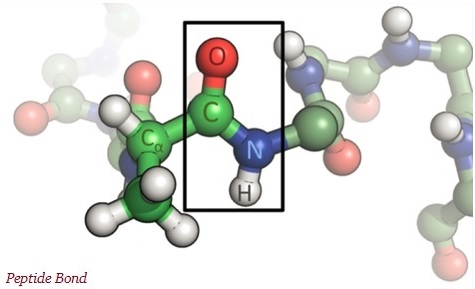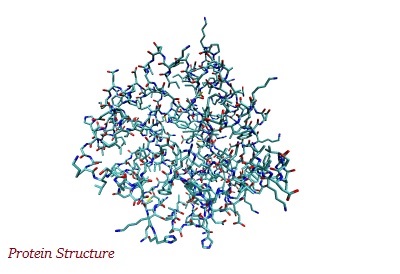
- Biology Notes for UPSC IAS Prelims (Part II)
- Biology - Home
- Biology - Classification of Organisms
- Biology - Cell Division
- Biology - Virus
- Biology - Bacteria
- Biology - Fungi
- Biology - The Roots
- Biology - The Plant Stem
- Biology - The Plant Leaf
- Biology - The Flowers
- Biology - The Fruit
- Biology - Plant Diseases
- Biology - The Blood
- Biology - Blood Group
- Biology - Human Brain
- Biology - Skeleton System
- Biology - Endocrine System
- Biology - Endocrine Diseases
- Biology - Carbohydrate
- Biology - Proteins
- Biology - Fats
- Biology - Vitamins
- Biology - Minerals
- Biology - Genetic Terminology
- Organisms & their Chromosome Counts
- Biology - Viral Diseases
- Biology - Bacterial Diseases
- Branches of Biology
- Inventions & Discoveries in Biology
- Nobel Prize in Biology
Biology - Proteins
Introduction
Proteins, which are basically biomolecules, play wide range of functions in the body of a living organism.
Proteins are made up of tiny elements of different types of amino acids.
A sequence of amino acid residues in a protein is known particularly by the sequence of a gene; gene is encoded in the genetic code.
After formation, proteins exist for a fixed period of time and are then degraded and recycled.
The proteins get recycled by the cell's machinery by the process of protein turnover.
Most of the proteins contain linear polymers made up of series of up to 20 different L-α-amino acids.
The amino acids in a polypeptide chain are connected by peptide bonds (see the image given below).

The peptide bond, usually, has two resonance forms, which contribute some double-bond characters.
Protein Structure
Most of the proteins illustrate unique 3-dimensional structures (see image given below).

However, proteins have not a rigid structure, but rather, proteins may vary between several related structures especially when they perform their functions.
Functions of Proteins
Following are the major functions of proteins −
In the cell, proteins are the chief actors that carry out the duties defined by the information encoded in genes.
Proteins are essential for the overall body growth.
Proteins play a role of bio-catalyst and biotic regulator.
Proteins provide instant energy especially during the emergency period.
Proteins help in catalyzing the metabolic reactions.
Proteins are the essential elements in DNA replication.
Proteins actively help in transporting molecules from one location to another in the body.
Types of Protein
Following are the major types of protein −
Enzymes − enzymes play important role especially during the breakdown of molecules. Enzymes are also required for the digestion and growth of the cell.
Structural Proteins − such type of proteins provide strength to cells, tissues, and organs.
Signaling Proteins − Such proteins facilitate cells to communicate with each other by providing signals.
Defensive Proteins − Such proteins help organisms to fight with infection and support damaged tissue in healing fast.
Hormone − Some hormones are proteins that help in metabolic activities.